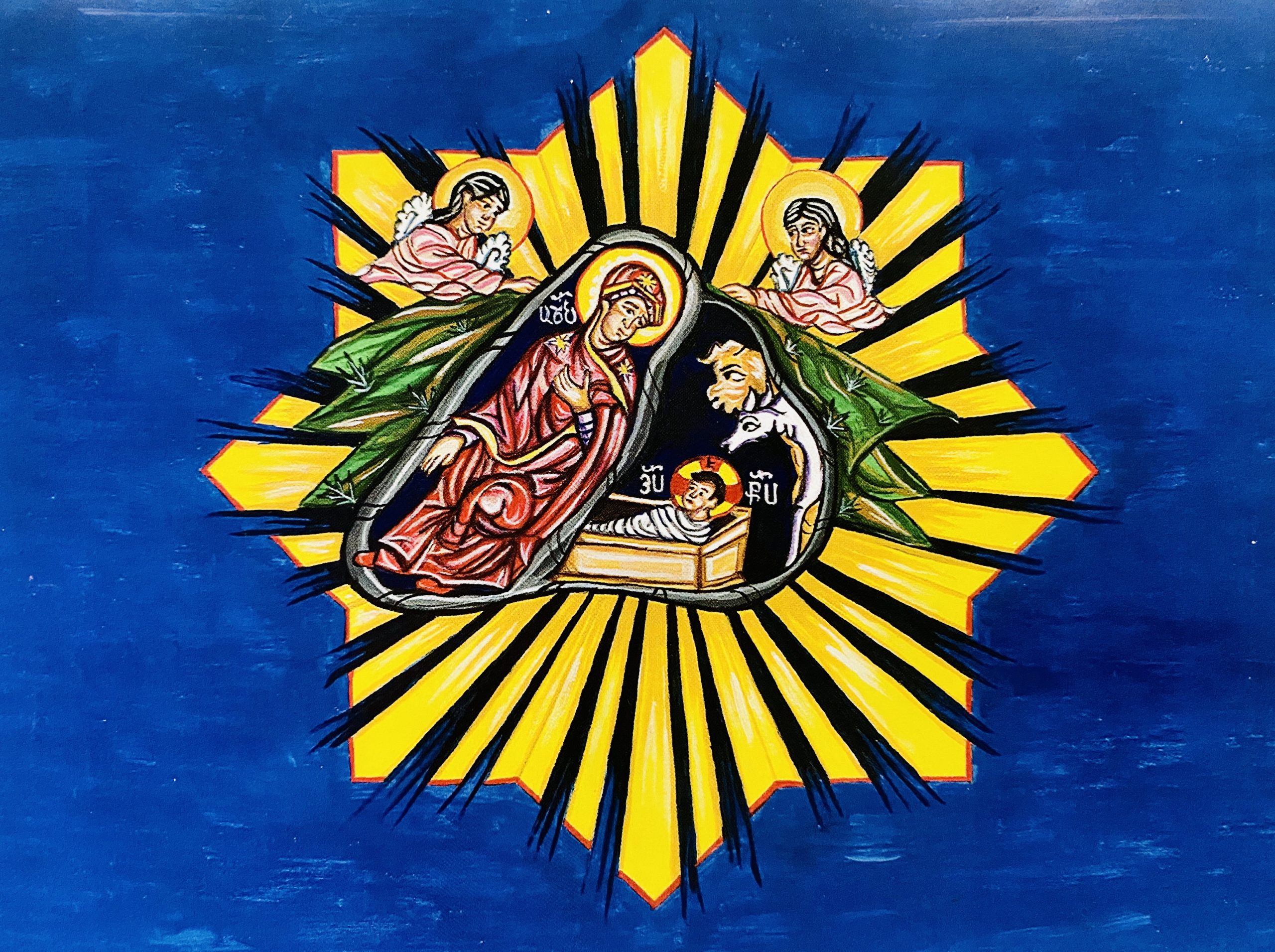
“Now when Jesus was born in Bethlehem of Judea in the days of Herod the king, behold, wise men from the East came to Jerusalem, saying, “Where is he who has been born king of the Jews? For we have seen his star in the East, and have come to worship him.’ And lo, the star which they had seen in the East went before them, till it came to rest over the place where the child was. When they saw the star, they rejoiced exceedingly with great joy; and going into the house they saw the child with Mary his mother, and they fell down and worshiped him. Then, opening their treasures, they offered him gifts, gold and frankincense and myrrh.” (Matthew 2:1-11, RSV)
The Armenian Church celebrates the holy birth (Sourp Dznount) of Jesus Christ on January 6. In Armenian tradition, this feast day commemorates not only the birth of Christ, but also His baptism by John the Baptist. The latter is remembered through the “Blessing of Water” ceremony, which follows the Divine Liturgy on the same day.
On the eve of the Feast of the Nativity and Theophany of Our Lord Jesus Christ, the Jrakalouyts Divine Liturgy (the lighting of the lamps service) is celebrated in honor of the manifestation of Jesus as the Son of God (theophany). It is custom for the faithful to hold lit candles during this special service.
On the following day, the mystery of our Lord’s baptism in the River Jordan is remembered in the ceremony of the Jurorhnek, or the “Blessing of Water.”
In ancient times, this ceremony was celebrated by the riverside or sea shore, but, for various reasons, it was later confined to the interior of the churches. During the ceremony, the cross is dipped in water, recalling Christ’s immersion in the Jordan River. Blessed oil, or Holy Chrism (Muron), is poured into the water from a dove-shaped container, symbolizing the appearance at the baptism of the Holy Spirit in the form of a dove and the voice of the Father proclaiming to all that Jesus is His Son.
The Holy Chrism is prepared in Holy Etchmiadzin and is blessed by the Catholicos assisted by the bishops. Muron contains olive oil, balsam and the essence of forty different flowers and herbs. At the end of the ceremony, members of the congregation are given the blessed water to drink, thereby sharing in the life-giving act of Christ. As water is essential to the life of the body, drinking the blessed water is a reminder that participation in the acts of Christ is essential for eternal life.
